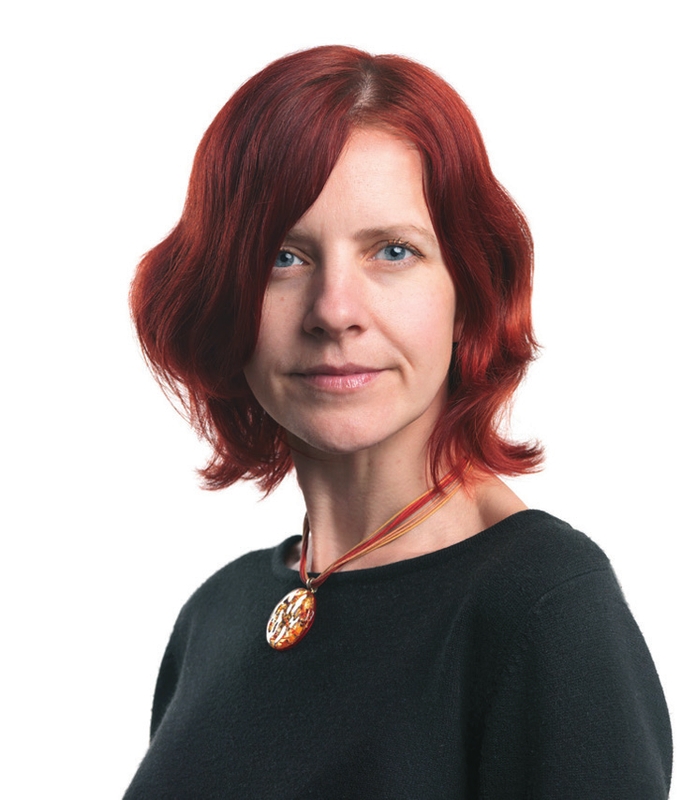Visiting a Requires Improvement School Just Before an Ofsted Inspection

“If you stick to the principle that the students must always be at the centre of everything you do, you find the way”

- by Helen Mulley
- Former editor of Teach Secondary magazine and award-winning podcast host

One of the many criticisms that is often raised about our education system’s current accountability process has to do with the inevitable ‘snapshot’ nature of an Ofsted inspection, especially when it lasts for one day only.
How much, really, can you learn about a school – the argument runs – during the course of a single visit? What if that visit happens to coincide with the Y7 trip to France, or sports day, or, heaven forbid, yet another outbreak of hostilities between rival cliques in Y9?
Of course, being invited into a school as a journalist is rather different from arriving as one of Her Majesty’s Inspectors – and there’s all kinds of information available to the latter that is rather less likely to be shared with a humble hack – but nonetheless, I would suggest that it is possible to get a pretty good ‘feel’ for a school, reasonably quickly, just by spending time there and asking the right questions.
Nightingale Academy’s last section 5 inspection took place in May 2016, when it was judged as ‘requires improvement’ across the board. A section 8 follow up, in December of the same year, concluded that whilst things were certainly moving in the right direction, there was still a lot more to be done.
And you won’t find a single member of staff there today who disagrees with either assessment at those points – including Ann Palmer, who stepped into the role of principal at the Edmonton school in September 2015.
Effective leadership

“You should have seen this place three years ago,” says Alec Laing, assistant vice principal, as he shows me around Nightingale’s bright, clean, well-maintained corridors, halls and classrooms.
“There would have been kids just wandering around outside during lessons; fighting; constant disruption. Now,” he adds, with a grin, “our students are lively, but lovely. They behave, and learn, because they want to.” I certainly don’t spot any signs of disorder during my visit; in fact, on the day, it’s one of the calmest schools I’ve visited, and quite possibly the happiest, too. So how has this apparent turnaround been achieved?
“It’s leadership,” Alec responds without hesitation, when I put the question to him. “So many leaders come in, and nothing changes – we had one guy who came, painted the whole school purple, then left; what was that supposed to achieve? Now, though, we’ve got a principal who puts trust in the teachers. We’re allowed to innovate, to make decisions, and we know we’ve got her backing. It’s empowering.”
The twin themes of teacher autonomy and school transformation come up time and time again as I’m guided round Nightingale’s buildings and grounds (including a fantastic 4G pitch and an impressively well tended allotment) by a succession of enthusiastic staff members and, at one point, a pair of charming and friendly sixth-formers.
From Lyndon Samuel, the tall Welshman who has created a music department from scratch, rescuing unloved ukuleles and silent steel drums from the cupboards in which they’d been lurking for years, and introducing cello lessons for promising musicians, to Alec’s own environmental improvements – adding inspirational artwork to walls, and displaying key formulae and quotations on all the staircase steps – there is a real sense here that after a lengthy period of lacking purposefulness, Nightingale is finally starting to turn into the school it was always meant to be.
The call
“I bet you can’t wait for the inspectors to come back,” I say to Alec after watching a particularly impressive MFL lesson, only half joking – Nightingale students’ progress in languages is amongst the best in the country.
And sure enough, when Ann Palmer walks into the staffroom at lunchtime and (in a peculiar twist of timing, given the presence of a journalist in the room) announces that ‘the call’ has just been received, the news provokes neither panic nor alarm amongst the assembled teachers; it’s business as usual for the rest of the day, including the time Ann had put aside for a chat with me.
“It was a very… difficult school when I arrived,” she says carefully, when she has welcomed me into her office, and I ask about the journey that has been taking place since her appointment.
“There were significant issues in terms of behaviour, attendance and so forth. Although some systems were in place, standards weren’t high enough, and nor were expectations of the children. A lot of the work I’ve done has been around skilling up staff, and making sure the climate for learning is appropriate; because if young people aren’t engaged, if they don’t know what’s expected of them, and what systems are there to support them, then really top quality teaching and learning can’t happen. What you have now is a completely different school: standards have been raised, staff are optimistic, and everyone is determined to take the roof off and see the potential for every child to achieve.”
One thing that it’s impossible to ignore when you are looking at where Nightingale was, is, and wants to be, is the hugely complex nature of the community it serves. No fewer than 55 languages are spoken amongst learners, and the rate of EAL is around 85%.
“I don’t see that as a negative thing,” insists Ann. “It’s part of our DNA. We have a diverse student body, so we put the strategies in place for language acquisition and development – such as training a group of Y8 pupils as young translators; for working with families; and for making sure we know how to support students right through from just beginning with English to aspiring to a university place. We have a roughly 10% turnover of student cohort each year – every week we might have four, five, or six new learners joining us, and the amazing thing is, this happens without unsettling the school at all. We keep that Nightingale vision, our sense of community.”
I’m reminded of the number of times during the day that I’ve heard cheerful cries of, “Morning, miss!” and “Welcome to Nightingale!” – in a range of accents – from students of all ages, proud to share their school with a stranger.
Changing, together

Turning struggling schools around is starting to become a recurring theme in Ann’s career; Nightingale represents the fourth time that she has been asked to do it, and it’s a challenge she continues to relish.
“It’s not that it becomes any easier,” she points out. “The context is always different, and you are starting with a new set of conditions every time. But ultimately, if you stick to the principle that the students must always be at the centre of everything you do, you find the way. I’m certainly not one of those heads who goes in and deems everything to be wrong; you have to look for those staff who have real potential, and work to bring them along so they feel they can be creative with their teaching, as well as confident with behaviour management and sharing best practice with colleagues. I’m very honest in my leadership – if something isn’t working, I’ll point it out – but then it becomes a question of, ‘What can we do about this? How can we make it right, together?’ And our CPD programme, I would say, is second to none.”
I’m interested to find out what the wider community thinks about the changes that are happening at Nightingale; given that a school’s reputation can often be tougher to turn around than the school itself. “We’re very outward looking,” explains Ann. “I say to visitors, it doesn’t matter what time of the day you want to come, just come. And every time they do, they take a positive message away with them. I don’t hear any bad news about Nightingale out there now, and that pleases me; I don’t get letters, I don’t see trouble at the gate – it’s to the great credit of the staff and students that they have changed the profile of the school so quickly.”
Everyday excellence
I’m nearly at the end of my ‘snapshot’ experience of Nightingale – and so, keenly aware that it will be the turn of the inspectors the next day, I prepare to leave; but not before sharing a final anecdote from my earlier learning walk with Ann: while standing in a classroom with maths lead and associate senior leader Andrew Scott, my photographer (who had been with me when Ann told staff about the imminent inspection) asked him whether he would have a lot of prep to do that evening “No,” replied Andrew, slightly surprised by the question. “We’ll just show them what we do every day.” Ann nods, satisfied.
At the time of writing, staff and students at Nightingale are still waiting for their Ofsted verdict. There’s no doubt that further improvement is required, especially in terms of outcomes – but I hope that the inspectors will agree with me in concluding that there is plenty to celebrate about this vibrant, inclusive and much-cherished school. As Ann says to me just before we say our goodbyes: watch this space!










